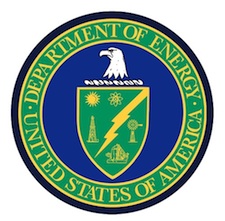
U.S. Energy Department Invests Another $28 Million in Cybersecurity
2.10.2018 securityweek BigBrothers
The U.S. Department of Energy on Monday announced that it’s investing up to $28 million in tools and technologies that will improve the resilience and cybersecurity of the power grid and oil and gas infrastructure.
The funding comes from the Office of Cybersecurity, Energy Security, and Emergency Response (CESER), which the DOE launched in February, and it aims to support the strategy described in the agency’s recently unveiled multiyear cybersecurity plan.DOE investing $28 million in cybersecurity
The money will support research, development and demonstration (RD&D) of innovative tools and technologies designed for preventing, detecting and mitigating cyber threats.
“Protecting the Nation’s energy delivery systems from cyber-threats is a top national priority,” said U.S. Secretary of Energy Rick Perry. “These awards will spur the next level of innovation needed to advance cyber resilience, ensuring that the Nation’s critical energy infrastructure can withstand potential cyber attacks while also still keeping the lights on.”
There are a total of 11 projects focusing on creating a cyber-resilient architecture for the electric and oil and natural gas subsectors, cybersecurity for oil and natural gas environments, secure communications, secure cloud-based technologies for operation technology (OT) networks, and technologies for enhancing cybersecurity in the energy sector.
Universities, national laboratories, and private-sector companies have teamed up for each of the projects. Award recipients include ABB, Dragos, GE Global Research, Schweitzer Engineering Laboratories (SEL), TDi, the Texas A&M Engineering Experiment Station, the United Technologies Research Center, and WhiteScope.

Industrial cybersecurity firm Dragos leads a project called The Neighborhood Keeper, which aims to develop a low-cost, cloud-based sensor network within OT networks to "enable integration of available technologies that will facilitate real-time and actionable information to reduce cyber risk.”
“Dragos is excited to be participating in a DOE program that helps expand accessibility to ICS cybersecurity,” Robert Lee, CEO of Dragos, said via email. “The secure, cost-effective architecture of Neighborhood Keeper is a service to the ICS community that will enable collaborative industrial control systems threat intelligence without the risk of sharing private information.”
This is not the first time the Energy Department announces significant investment in cybersecurity. Roughly one year ago it offered over $20 million for projects focusing on cybersecurity, and earlier this year it announced awards of up to $25 million for technologies designed to protect the country’s energy infrastructure against cyber threats.